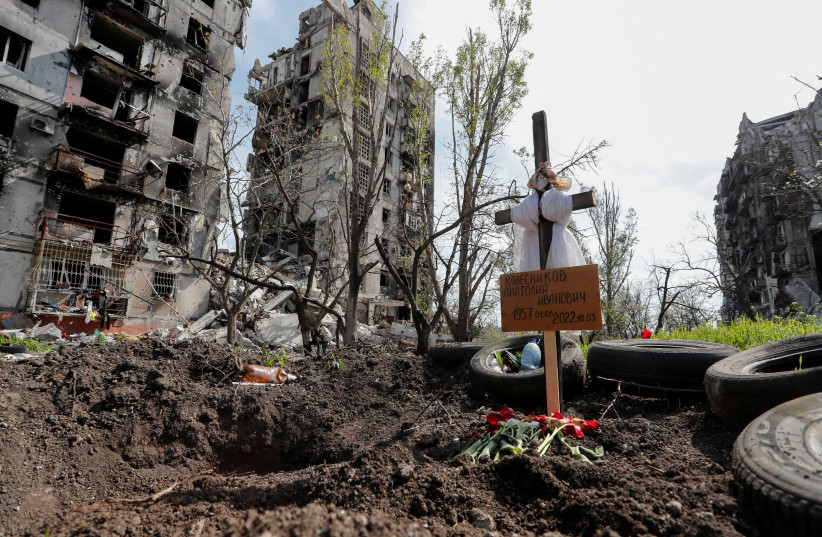Israel has made a proper effort to honor veterans of World War II this week while avoiding turning the celebrations into a Russian wartime propaganda event, Ukrainian Ambassador to Israel Yevgen Kornichuk said Sunday.
Victory Day is a major holiday in Russia, with parades around the country celebrating the end of World War II, which Russian President Vladimir Putin uses to promote his own agenda. In 2017, the Knesset passed a law to have the day celebrated in Israel each year.
“I told [Israeli] ministers that we have to be careful because it might create additional tensions in society,” Kornichuk said.
Israel celebrates Victory Day on May 9, the day Russia and most post-Soviet countries celebrate the end of World War II, as opposed to VE Day or Victory in Europe Day on May 8, which is when Western Europe and the US mark the occasion.
Kornichuk denied Hebrew media reports that he had asked Israel to hold the celebrations a day earlier because he realized it would not be possible to change the law in time. Ukraine celebrated on both days in the past but went with VE Day this year, following the Russian invasion.

Kornichuk said the Israeli government “did a lot” to avoid Russian propaganda at the event, which is “satisfactory for all parties.”
“They will be celebrating without any presence of foreign diplomats, which is good,” he said. “There will be a commemoration at the Knesset a day after in accordance with the law. They are following the legislation strictly.”
“No money is going to municipalities to hold events, to avoid possible local conflict,” he added.
Kornichuk said the celebrations were still important.
“We have to admire the veterans’ fight against the Nazis in World War II – that’s for sure,” he said.
The Russian Embassy in Israel declined to comment on the matter. Last month, Putin’s spokesman Dmitry Peskov said Moscow would not be inviting any foreign leaders to attend the festivities.
Kornichuk also pushed back against a report that Israel had played a key role in establishing a humanitarian corridor out of Azovstal in Mariupol and that Housing and Construction Minister Ze’ev Elkin offered further assistance in negotiating humanitarian terms between Ukraine and Russia.
“Our understanding is that [the humanitarian corridor] worked out because of UN Secretary-General Antonio Guterres,” he said. “With all due respect, we value very much the advice provided by Minister Elkin, but if we are talking about this evacuation matter, the credit is for the UN.”
When Ukrainian President Volodymyr Zelensky spoke with Prime Minister Naftali Bennett last week, he asked for help evacuating wounded soldiers, Kornichuk said.
The statements from Jerusalem and Moscow about a subsequent conversation between Bennett and Putin referred to evacuating civilians with the help of the UN and the Red Cross.
“We learned from Russian news that the Russian president says we just have to give up and surrender” to get the wounded soldiers out, Kornichuk said.
